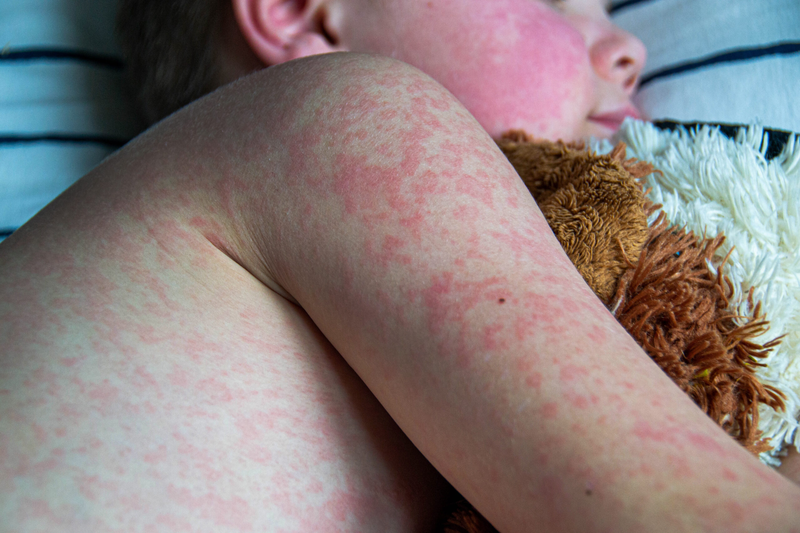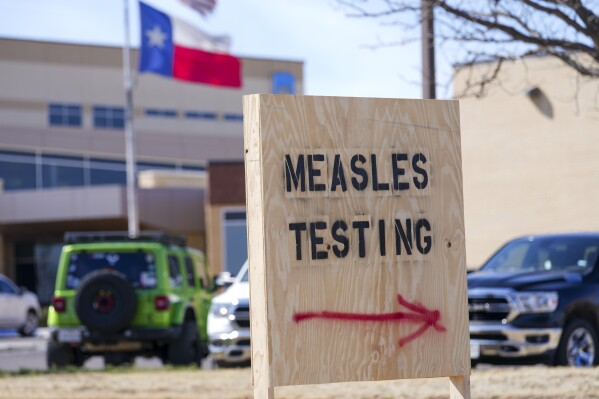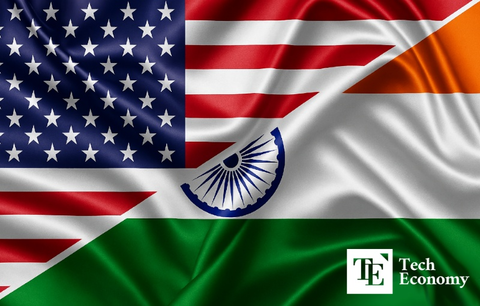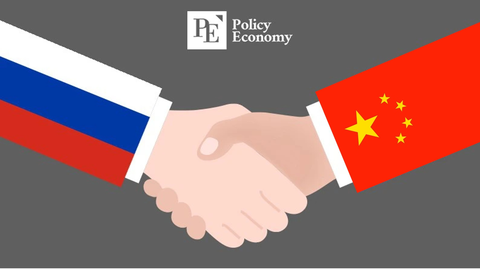Public Health in the Crosshairs of Political Turmoil: The Measles Outbreak in Texas and New Mexico
Input
Changed
The Emergence of the Epidemic Political Unrest and Vaccine Pessimism Moving Forward: Restoring Confidence and Controlling the Outbreak

The Emergence of the Epidemic
Public health officials are once again in crisis mode due to the resurgence of measles, a disease that was nearly eradicated in the United States. A rapidly expanding outbreak in Texas and neighboring New Mexico has sparked a cascade of concerns among residents and experts, causing alarm in communities. The crisis has become entangled in a broader political debate as health authorities attempt to contain the spread. The controversial appointment of US Secretary of Health, RFK Jr., is at the heart of that debate. His vaccine pessimism is now widely recognized as a disruptive force within the Centers for Disease Control and Prevention (CDC) and the nation's overall outbreak response.
In Texas, the current measles pandemic is the most severe in the state in 30 years, with nearly 90 confirmed cases in seven counties. The outbreak is primarily affecting West Texas counties, including Dawson and Ector, as well as Gaines, Lubbock, Lynn, Terry, and Yoakum. Health officials have reported a substantial increase in the number of cases, particularly among children aged 0–4 and 5–17, despite the fact that the pandemic began with only a few isolated cases in late January. The severe implications for vulnerable populations, including infants, expectant women, and immunocompromised individuals, have been underscored by the confirmation by local health departments that 16 patients necessitated hospitalization.
The virus has also infiltrated eastern New Mexico, indicating that it is not confined by state borders, in addition to Texas. The situation is particularly dire in communities with persistently low vaccination rates. In one stark example, the Mennonite community in Gaines County, which is renowned for its historically low adoption of vaccines, has emerged as an epicenter of the crisis. Despite the fact that national vaccination rates have remained high, these communities provide a fertile environment for measles to re-establish itself, as kindergartners in certain areas have vaccination rates as low as 46%.
Health departments in Texas and New Mexico have intensified their public outreach initiatives in response to the increasing public anxiety. They have organized a series of Q&A sessions to directly address the outbreak. Residents have been afforded the opportunity to pose critical inquiries regarding the disease's origins, dissemination, and prevention during these sessions. The following are some of the most urgent inquiries:
What was the cause of the outbreak?
The resurgence of measles is primarily due to vaccine hesitancy and exemptions in specific communities, according to experts. Pockets of vulnerability have been established as a result of historical deficiencies in mandatory vaccination mandates, as well as cultural or religious opposition. Despite the United States' declaration of measles elimination in 2000, the virus has reemerged in certain regions due to a decrease in vaccination rates.
Are individuals who have received vaccinations at risk?
While breakthrough cases in fully vaccinated individuals have been documented, the consensus is that the measles-mumps-rubella (MMR) vaccine is highly effective—over 97% effective in preventing measles. The majority of infections have been observed in the unvaccinated or among individuals with unknown vaccination status, with only a small number of cases occurring among the fully vaccinated in the current outbreak.
What measures have been implemented to prevent the spread of the disease?
Health officials have outlined a multifaceted strategy that encompasses immediate vaccination campaigns, isolation protocols for exposed individuals, and aggressive contact tracing. Temporary vaccination clinics have been established in communities that are experiencing rapid case increases to ensure that the MMR vaccine is accessible promptly. This vaccine can provide a substantial level of immunity within two weeks of administration.
What are the methods by which parents can safeguard their children?
The importance of community protection for children under the age of 12 months who are not yet eligible for the vaccine has been underscored during the Q&A sessions. This entails the vaccination of elder children and adults to establish a "cocoon" of immunity around those who are most vulnerable.
In addition to demystifying numerous aspects of the outbreak, these public sessions have also underscored the critical importance of community engagement in public health crises. However, a veil of uncertainty persists, which is further exacerbated by external political influences, despite these endeavors.

Political Unrest and Vaccine Pessimism
The outbreak has now become a flashpoint in an already contentious political landscape, particularly in light of the appointment of RFK Jr. as the US Secretary of Health. RFK Jr. has been a divisive figure in the immunization debate for a long time, as he is recognized for his critical views on vaccine safety. Many public health experts have expressed concern regarding his stance, which is frequently described as vaccine pessimism. Critics contend that his skepticism regarding established vaccination policies undermines the scientific consensus that vaccines are both safe and necessary for public health.
RFK Jr. has raised concerns about potential adverse effects on numerous occasions, despite the fact that there is a wealth of evidence to the contrary, regarding the prevailing narrative regarding vaccine efficacy and safety. His method is perceived as particularly problematic in the context of the current outbreak. In light of the urgent need to enhance community immunity and the increasing number of cases, public health officials are advocating for clear, science-based messaging. However, this appeal is being undermined by his public pronouncements.
CDC Process Disruption
RFK Jr.'s appointment has had a tangible impact on the inner workings of the CDC, in addition to his controversial views. According to insiders, his leadership manner and policy priorities have disrupted the agency's established processes. Historically, the CDC has been guided by a dedication to evidence-based policy, rigorous scientific evaluation, and decades of epidemiological data when responding to outbreaks such as measles. Nevertheless, there is an increasing apprehension that political considerations are now being prioritized over scientific rigor under the new leadership.
Critics in the public health community have asserted that his presence has impeded the speed and efficacy of decision-making processes that were previously efficient. For example, the customary swift implementation of vaccination campaigns and transparent communication strategies are currently being scrutinized and debated, which can result in significant delays during a rapidly evolving outbreak. Some public health officials are concerned that the trust that the CDC has established with the general public and local health departments over the course of many years is being eroded by the internal conflicts and policy disruptions that have arisen as a result of his appointment.
The Disruption is Illuminated by Q&As
Several inquiries were directed not only at outbreak management but also at the broader policy implications of these disruptions during recent Q&A sessions. Local health officials and community members have both expressed apprehension that the outbreak response's urgency may be diminished by the conflicting messages emanating from Washington. The following are the questions that have been
What is the reason for the inconsistency in vaccination messaging?
The recent turmoil within the CDC is cited as a significant factor by local officials. The agency's communication with the public has been compromised as a result of the ongoing questioning and restructuring of its long-standing protocols. This inconsistency is particularly perilous when the control of measles necessitates clarity and timeliness.
What is the impact of the new leadership on the local response efforts?
Some local health departments have reported that internal delays have impeded their access to critical resources and guidelines. With the appointment of RFK Jr., decisions that previously took hours are now taking days, a delay that could result in preventable cases and additional hospitalizations.
What measures are being implemented to reestablish public confidence?
Several health officials have reaffirmed their dedication to collaborating with local communities and adhering to established scientific protocols in response. They emphasize that the emphasis must remain on effective containment strategies and rapid vaccination, despite the fact that political debates will undoubtedly persist. A return to a more apolitical, evidence-based approach to contagion management is being advocated by a significant number of individuals in the public health sector.
The More General Consequences for Public Health
A case study in how political interference can compromise public health, the measles outbreak in Texas and New Mexico is not solely a local or regional issue. The situation exemplifies a concerning reality: the repercussions of a collision between science and politics can be severe. Vaccines, which were once celebrated as one of the most significant accomplishments of contemporary medicine, are currently embroiled in a tumult of controversy that has the potential to impede years of advancement.
This conflict has been symbolized by the tenure of RFK Jr. as Secretary of Health. In addition to causing confusion among the public, his vocal skepticism regarding vaccine safety has also complicated the CDC's internal operations, despite the overwhelming evidence supporting the efficacy of the MMR vaccine. In an era where every instant is crucial, particularly during an outbreak, any delay or dilution of scientific messaging can have life-or-death consequences.
The consequences of these disruptions are not limited to the imminent measles outbreak. They pose critical inquiries regarding the nation's public health policy's future trajectory. How will the CDC manage its mission in the face of ongoing political pressures that necessitate the constant reevaluation of its processes? And what does this imply for the next time a disease presents a challenge to the nation's health infrastructure?

Moving Forward: Restoring Confidence and Controlling the Outbreak
Local health officials maintain their resolve in spite of these obstacles. Efforts to boost vaccination rates are being stepped up in Texas and New Mexico. A multi-layered strategy is being implemented to contain the outbreak as quickly as feasible, which includes proactive public engagement, rigorous contact tracing, and emergency vaccination clinics. Simultaneously, numerous experts are advocating for a recommitment to evidence-based public health policies that are independent of political ideologie
The Q&A sessions have been an essential resource in this endeavor, as they have facilitated communication between government agencies and the general public. Health officials hope to mitigate the confusion generated by political debates by directly addressing concerns and disseminating transparent, scientifically supported information. Measles is a preventable disease that necessitates a coordinated, unified response to be eradicated, and this is the fundamental premise of these discussions.
The path forward will necessitate a recalibration of public health policy and rapid medical intervention as the outbreak continues to evolve. This is a moment that necessitates not only scientific expertise, but also strong, decisive leadership that prioritizes the health and well-being of all citizens over political point-scoring.
The measles outbreak that is currently affecting Texas and New Mexico serves as a stark reminder of the rapidity with which public health victories can be undermined. Communities are currently contending with an uphill battle against a virus that capitalizes on any vulnerability in herd immunity, as evidenced by the consistent increase in new infections and the nearly 90 confirmed cases. Simultaneously, the crisis has been further exacerbated by the political controversies that have arisen in the wake of RFK Jr.'s appointment as the US Secretary of Health. These controversies were characterized by his vaccine pessimism and the subsequent disruption to CDC processes.
In the end, the success of the outbreak response is contingent upon the restoration of public trust in science and the return to a unified, evidence-based approach. The priority must remain unambiguous: to safeguard the most vulnerable individuals and to halt the transmission of a disease that is wholly preventable with appropriate vaccination, despite the ongoing political debate. This public health emergency can only be contained and future epidemics prevented through collaborative efforts at both the local and federal levels.
The lessons acquired from this crisis will undoubtedly influence the future of American public health policy for years to come as Texas, New Mexico, and the nation address these challenges.





















